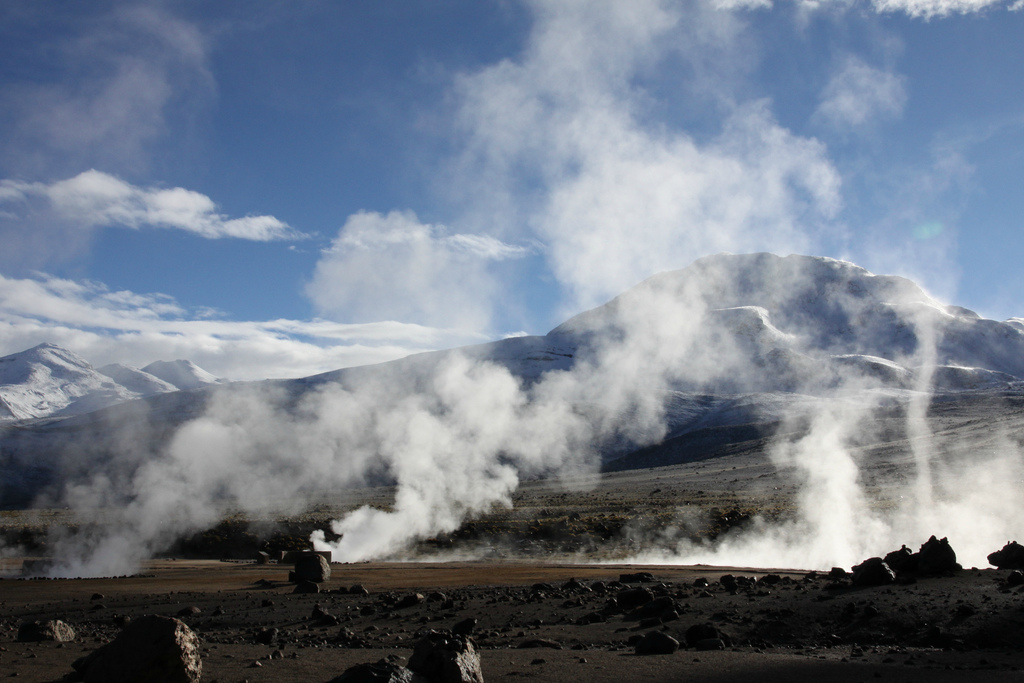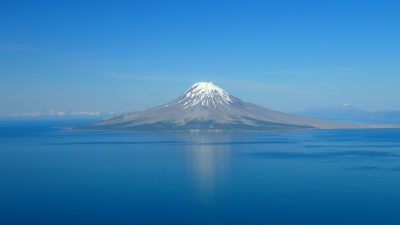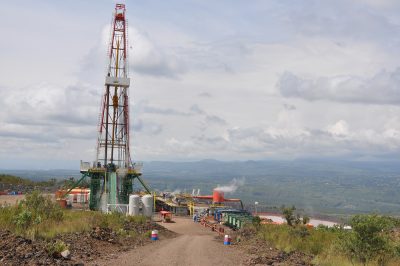Chile: Government investigates drilling campaign at Tatio Geysers
Drilling by Italian geothermal company Enel at the Tatio Geysers, one of northern Chile’s premier tourism attractions, has been stopped for at least two weeks so that the government can investigate the project’s effects on the environment, the area’s tourism-based economy and nearby indigenous communities.
“Reported locally, “Drilling by Italian geothermal company Enel at the Tatio Geysers, one of northern Chile’s premier tourism attractions, has been stopped for at least two weeks so that the government can investigate the project’s effects on the environment, the area’s tourism-based economy and nearby indigenous communities.
The investigation was triggered by a 60-meter-high vapor current shooting out of one of the field’s 80 geyser on Sept. 12 and, to date, not stopping. The geysers are usually less than a meter tall and the largest previous eruption was less than six meters high.
The government called for the investigation last Thursday, days after local government authorities and citizens groups blamed the unprecedented geyser eruption on drilling by Enel’s Geotermica del Norte (GDN). Company representatives, however, insist that the drilling has not resulted in any harm and that the towering vapor current is not damaging.
The aberrant geyser has caused national concern and has been covered by Chile’s media every day since then. The publicity glare has lead many groups to question other energy projects located on or near national treasures and the damage they might cause.
Calama’s mayor Esteban Velasquez joined with environmental, indigenous, and citizens groups to insist that Enel “abort” the geyser-drilling explorations indefinitely. Instead, he is pushing for the geysers to be dedicated to “green” tourism purposes.
“We’ve said this more than once,” said Velasquez. “No one can guarantee that there will be no harm done to natural archeological heritage sites if you explore an area like this that, for us, has an incomparable beauty. Any investigation should be directed at developing the tourism potential of the geysers. But that didn’t happen and we’re worried because it seems that the consequences are quite negative and unfortunate, and we’re just at the exploration stage. This is the part of the energy project with the least impact on the geysers.”
The geysers, which erupt each morning like clockwork, are near the famed San Pedro de Atacama tourist destination. Visits to the geysers are largely run by the nearby Atacama Desert indigenous community. Thousands of tourists visit the geysers each year and critics fear intervention by the energy project may make the geysers less dramatic or even put an end to their daily display. This, of course, would put an end to much of the local tourism business.
Local indigenous group participated in a protest march on Saturday against the construction of any geothermal energy project near the geysers. The protest was lead by the Environment and Tourism Coalition of San Pedro de Atacama.
Provisional drilling at the site began in April in order to assess the financial feasibility of setting up geothermal electricity plant to deal with the country’s growing energy needs. The House of Deputies is scheduled to meet on Wednesday to discuss if Enel’s geothermal project on the Tatio Geysers is environmentally and economically responsible.
Both the Tatio Gaysers project andEnel’s hydro projectHidroAysen affect “areas with great heritage value – both environmental and cultural,” said Peter Hartmann of the citizens’ group Coalición Ciudadania por Aysén Reserva de Vida. He calls projects like these problematic, especially when they are backed by the government and receive environmental permits despite causing irreparable damage.
“We don’t want what happened (in the Tatio Geysers) to happen in Aysén,” said Hartmann.
Chileans concerned about the Tatio drilling activity created a Web site this week to better publicize the issue: www.tatio.org.”
Source: Santiago Times


















